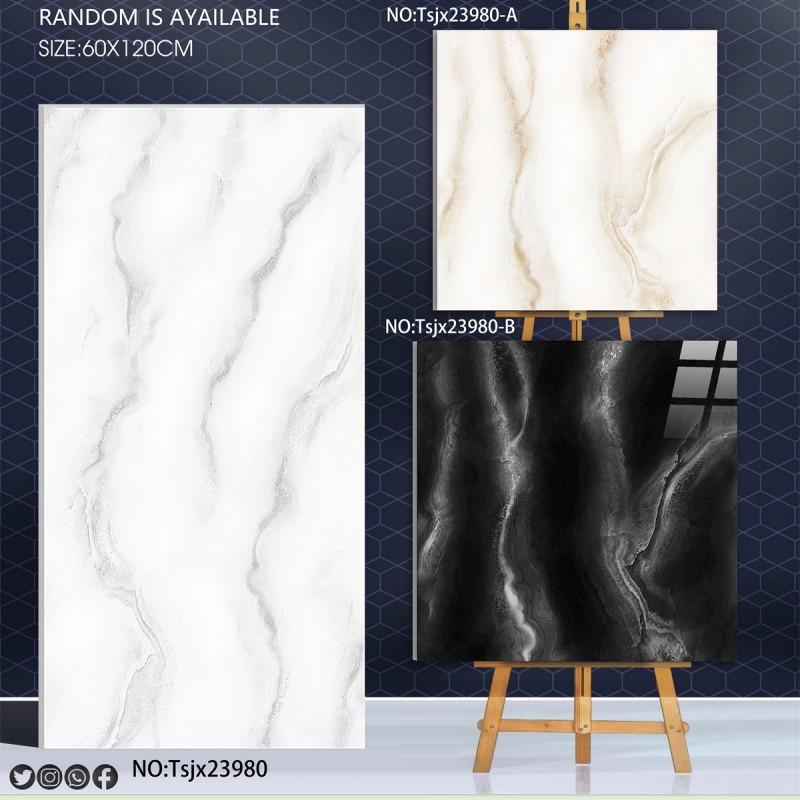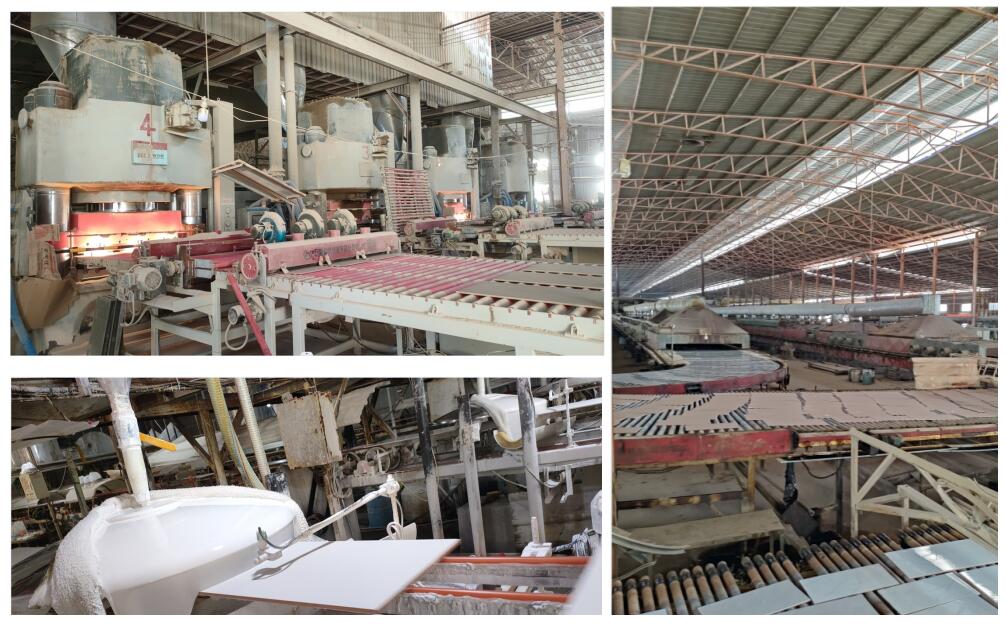
Here's some information about porcelain tiles:
Material and Construction: Porcelain tiles are made from refined clay that is fired at very high temperatures, resulting in a dense and hard material. The manufacturing process involves pressing the clay into tiles and then firing them at a temperature higher than ceramic tiles. This process creates a highly durable and non-porous tile that is resistant to water, stains, and scratches.
Advantages of Porcelain Tiles:
Durability: Porcelain tiles are known for their exceptional durability, making them suitable for high-traffic areas and outdoor applications.
Water Resistance: Due to their low water absorption rate, porcelain tiles are a great choice for bathrooms, kitchens, and other areas exposed to moisture.
Versatile Design Options: Porcelain tiles come in a wide variety of colors, textures, and patterns, allowing for a range of design possibilities.
Low Maintenance: Porcelain tiles are easy to clean and require minimal maintenance. Regular sweeping and mopping are typically sufficient to keep them looking their best.
Types of Porcelain Tiles:
Glazed Porcelain Tiles: These tiles have a layer of glaze applied to the surface for added color, texture, and protection. Glazed porcelain tiles are available in various finishes, such as matte, glossy, and textured.
Full Body Porcelain Tiles: In full body porcelain tiles, the color and composition of the tile material are consistent throughout the entire thickness. This makes them particularly suitable for high-traffic areas, as any wear and chips will be less noticeable.
Polished Porcelain Tiles: Polished porcelain tiles have a glossy, reflective surface that adds a touch of elegance to any space. They are popular for achieving a sleek and sophisticated look.

Considerations:
Size and Shape: Porcelain tiles come in a variety of sizes, including square, rectangular, and large-format tiles. Consider the size and layout of your space when choosing tile dimensions.
Slip Resistance: If using porcelain tiles for areas prone to moisture, such as bathrooms or kitchens, consider the slip resistance rating. Look for tiles with textured surfaces or appropriate slip-resistance features for added safety.
Installation: Proper installation is crucial for the longevity and performance of porcelain tiles. Hiring a professional installer with experience working with porcelain tiles is recommended.




